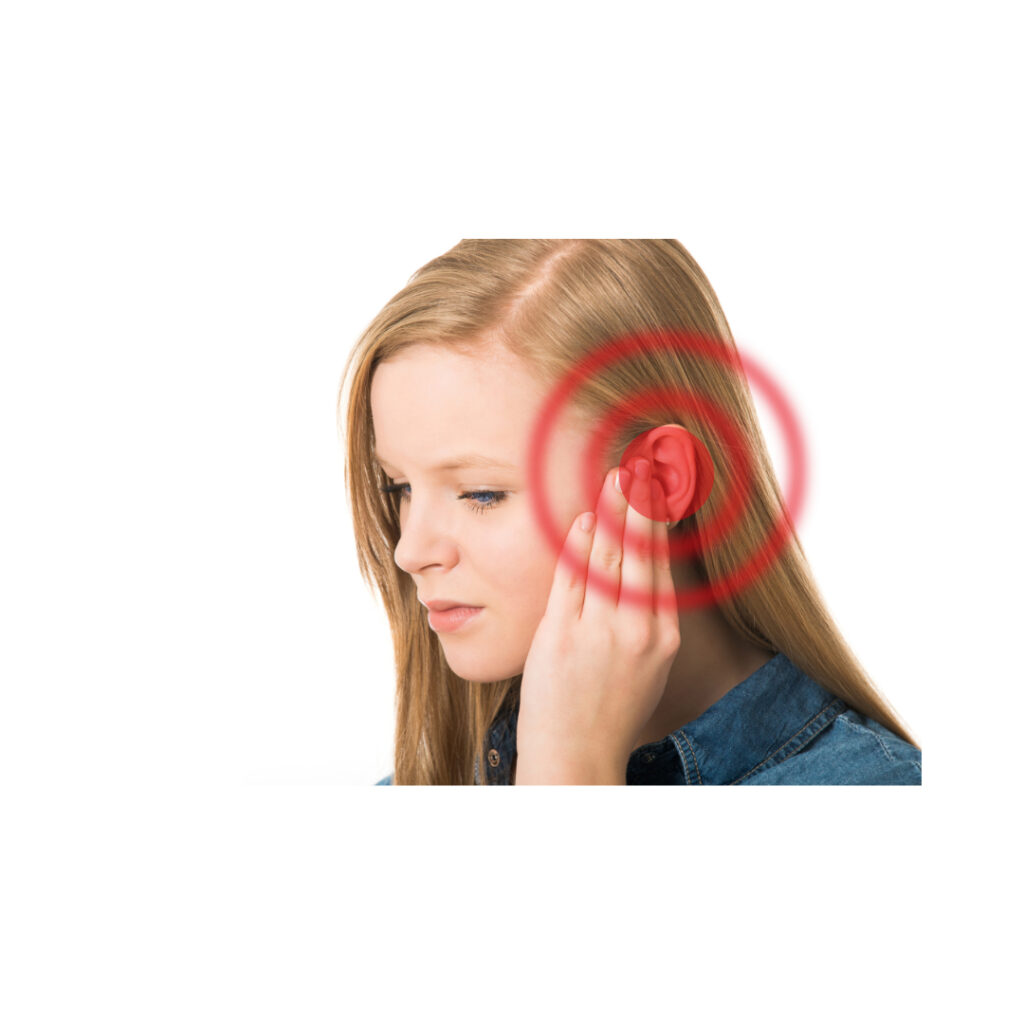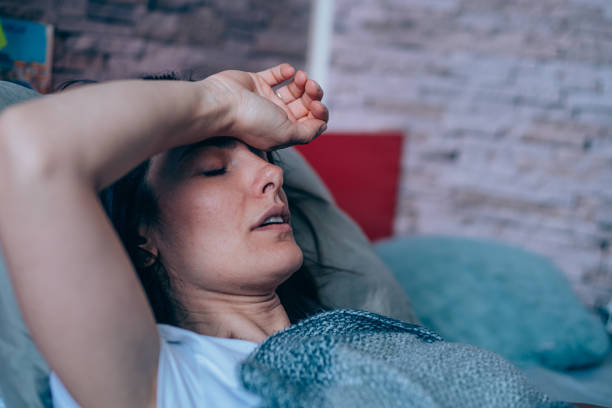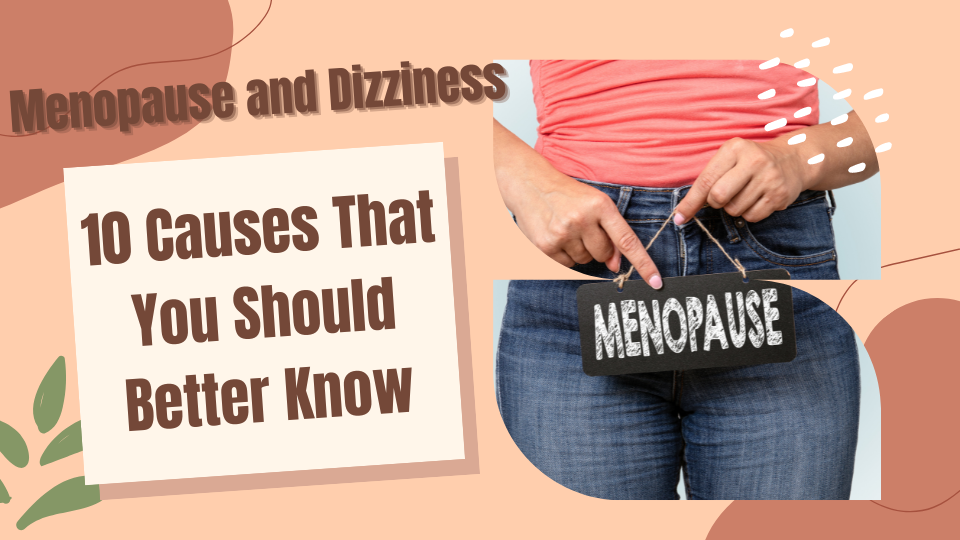Some women experience menopause and dizziness. Find out what might be causing your dizziness during menopause and how you can address it.
In that case, you are probably having a dreadful time not just due to hot flashes and night sweats, both of which make it difficult to focus on your day-to-day responsibilities, but also because headaches are a side effect of menopause. Because of the increased amounts of estrogen that women experience throughout menopause, it is not unusual for them to suffer from severe headaches at this time.
Table of Contents
How to deal with dizziness during menopause

During menopause, many women report experiencing dizziness as a typical symptom. Changes in hormone levels are the most common cause of this condition, which may make it difficult to move or even remain still. As a result of the impaired vision that it generates, the feeling of dizziness may also make it difficult to read or watch television.
You may try to solve this issue by following these steps:
- Instead of eating three substantial meals daily, eat several smaller meals throughout the day. This will assist in keeping the weight gain under control, a common symptom of menopause.
- Consume a large amount of water daily to prevent dehydration and ensure your body remains hydrated.
- Make physical activity a daily habit, but ease into it first so that you won’t injure your muscles or have cramps in your legs when you resume your exercise routine for the first time in a while. If you last worked out a while ago, start walking around the block several times a day until your muscles get used to working out again. After that, gradually increase your distance or speed over time as needed until you reach your weight loss or muscle gain goals, at which point you can adjust according to what works best for you personally. If your last exercised a while ago, start walking around the block several times a day.
- Ensure that your house is equipped with good light bulbs in every room so that there are no dark areas where shadows may make you feel dizzy if you look around too much.
Why does menopause cause dizziness?
Cause of menopause and dizziness: Sleep deprivation
When women reach older ages, they often experience less restorative sleep compared to when they were younger. When they manage to go through the night without waking up, they have a greater chance of waking up feeling lightheaded or having episodes of fainting as a result.
Cause of menopause and dizziness: Shifts in hormone levels
During this time, a woman’s hormone levels begin to alter considerably. It is common for a person to enter this transitional period while they are in their forties.
Periods gradually grow unpredictable and cease occurring altogether. Menopause typically begins whenever a woman has gone 12 months without having menstruation.
On the other hand, some women may go through menopause at an earlier age. This transition may occur earlier if a person has a health issue or has had surgery or other therapy that alters their hormones or ovaries. This transition can also occur at a younger age if a person has a genetic predisposition.
During the transitional period known as perimenopause, a woman’s ovaries will gradually generate less estrogen and progesterone. Although these hormones are primarily crucial for the health of the reproductive system, there is some evidence that they also contribute to the proper operation of other organs, such as the brain, the ear, and the heart.
Cause of menopause and dizziness: Blood sugar middle ear issue

Dizziness is a common symptom that ear issues may bring on. Hormonal shifts are thought by some specialists to be able to impact the likelihood of developing this kind of disease.
The otoconia, an organ of the inner ear comprised of tiny crystals called otoliths, sends information about the body’s equilibrium to the brain.
According to the findings, there seems to be a correlation between a decline in estrogen levels and a weakening of the otoconia. To put it another way, changes in hormone levels might be a factor in dizziness associated with the ear.
Cause of menopause and dizziness: Metabolism

The process through which the body converts the nutrients in meals into glucose and transports it to the cells, which are used to create energy, is called metabolism. Estrogen has a role in the maintenance of this process.
Changes in estrogen levels are associated with potential shifts in blood glucose levels. As glucose levels increase and fall, the body’s cells may not get a regular source of energy, which may contribute to weariness and dizziness. This can happen when blood glucose levels fluctuate a much.
Cause of menopause and dizziness: Cardiovascular
The cardiovascular system may be affected by the hormonal shifts that occur during menopause, and the effect of these changes might be palpitations or an irregular pulse.
When a person’s heartbeat is irregular, it prevents the heart from adequately pumping blood throughout the body, preventing the blood from delivering the typical quantity of oxygen. The decreased amount of oxygen that can reach the cells in the body might cause a person to feel faint or dizzy.
Cause of menopause and dizziness: Age-related

Menopause, on the other hand, often occurs around the middle years of a person’s life, which is also when age-related changes begin to occur.
It’s possible, for instance, that the inner ear and several other biological systems won’t function as effectively as they once did. When a woman reaches menopause, she may have dizziness, which several age-related issues may cause.
Cause of menopause and dizziness: Insomnia
According to the Sleep Foundation, menopausal symptoms, including hot flashes, anxiety, and sadness, may make it difficult to get sleep. The symptoms of exhaustion, including dizziness, might manifest in those who do not obtain enough excellent sleep.
According to the findings of several pieces of study, disorders that might cause dizziness can also impact the quality of sleep an individual gets. Anyone who has trouble sleeping for more than a few nights in a row or who often feels dizzy should be checked out by a medical professional since these symptoms might point to a more severe issue.
Cause of menopause and dizziness: Hot flash
The sensation of heat that occurs during a hot flash may briefly expand over the face, the neck, and the upper torso. It is possible to have dizziness together with other symptoms such as sweat, heart palpitations, nausea, headache, and weakness simultaneously.
If hot flashes occur throughout the night, it may be challenging to get a good night’s sleep, which, in turn, may cause dizziness during the day.
Cause of menopause and dizziness: Migraines
A significant number of women who suffer from migraines report that they have seen a correlation between their migraine attacks and their menstrual cycles. During menopause, some people see an improvement in their migraine symptoms. On the other hand, 45% of females who suffer from migraines report that their symptoms get worse during this period.
There is a tight relationship between migraines and dizziness, which are frequent during menopause. Dizziness may also be a symptom of migraines.
Some women start to suffer from a kind of migraine characterized by headaches and dizziness around the time they enter menopause. Epigone migraine vertigo is the name given to this kind of dizziness.
Cause of menopause and dizziness: Anxiety and strain on the body
During menopause, many women experience symptoms such as anxiety and despair. Hormonal shifts, events that occur throughout the midlife years, and worries about matters like becoming older, maintaining one’s health, and caring for elderly parents are all factors.
Anxiety may sometimes rise to panic attacks, which are characterized by a racing heart and a feeling of extreme lightheadedness.
There is a connection between vertigo and anxiety. They could not establish beyond a reasonable doubt that one condition was the cause of the other; nonetheless, they hypothesized that addressing anxiety could help decrease dizziness.
FAQs
What does menopause dizziness feel like?
As menopause approaches, you may begin to encounter symptoms such as hot flashes and night sweats, which may increase your likelihood of feeling dizzy. The most common menopause-related dizziness is palpitations, which are irregular heartbeats. Palpitations can come on suddenly and feel like your heart is skipping a beat or beating too fast or slow.
Does menopause dizziness go away?
Yes, dizziness associated with menopause may disappear. Menopause is a period when the body undergoes changes and hormones begin to stabilize. During this period, the majority of women suffer symptoms like as hot flashes, nocturnal sweats, and mood changes.
How do you get rid of hormonal dizziness?
Hormonal dizziness is a kind of vertigo induced by variable hormone levels.
It is essential to note that hormonal dizziness is not permanent, and that it may be treated with these easy steps. Consume a balanced low calorie food, drink a lot of water and workout every day.
What causes dizziness during menopause?
During menopause, dizziness may be caused by a variety of causes, including hormonal changes and changes in blood pressure. Changes in hormones that occur during menopause may result in a decline in estrogen levels, which can produce dizziness and other symptoms.
Conclusion
Menopause is a normal process that occurs in most women, although its symptoms might differ from woman to woman. For some, the experience may be quite vivid, while for others, it may be more gradual. Several variables, including genetics, general health, and lifestyle, may influence your experience.
Experiencing menopause with dizziness may not be a pleasant experience. However, by understanding the reasons and treatments for menopause and dizziness, you may overcome this. It is beneficial to get such knowledge before the actual onset of symptoms. I am certain that you will get more knowledge about menopause and dizziness after reading this article.

